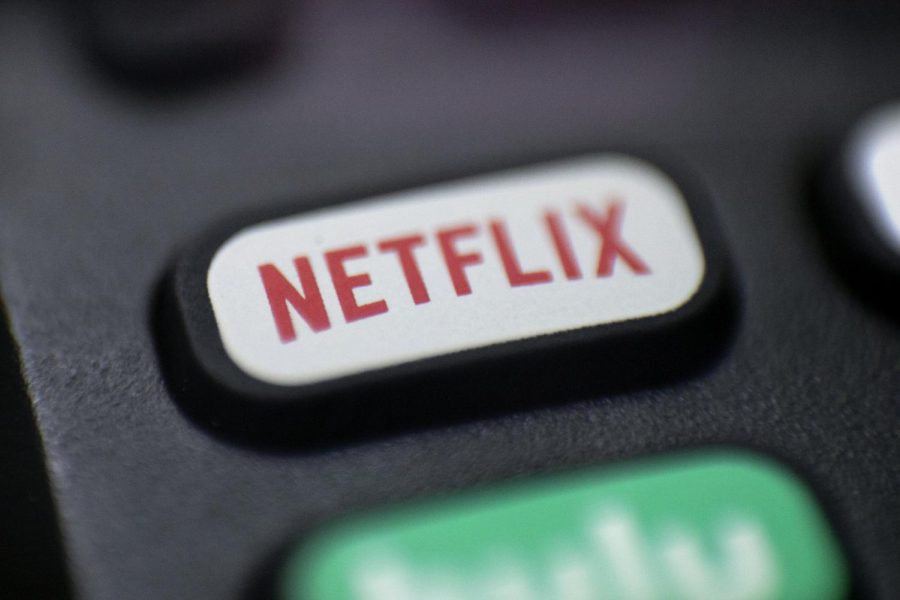Don’t watch Netflix’s next new show
This Aug. 13, 2020 photo shows a logo for Netflix on a remote control.
Apr 22, 2021
Why is no one talking about “The Queen’s Gambit” anymore? What about the true crime documentary about “The Vanishing at the Cecil Hotel”? These shows were both good, albeit different. The one thing they have in common with each other — and every other new Netflix show — is that they faded into obscurity when the next show came along.
Every new Netflix show comes with two guarantees. First, they boast that it’s “No. number one in the U.S. Today” for a few days. Second, you’ll see it them on your recommendation list. Perhaps Netflix is just advertising its own content. It may also be the result of an algorithm, recognizing the viewers’ tendencies to keep up with new shows.
There are a few reasons why we continue to watch trending shows. First, everyone seems to have already seen it and they’ll talk about it until the next trending show takes its place. No one likes to feel outside of the loop. I notice that people value being able to keep up with both the conversation and the times. Watching TV to keep up with the world allows us to justify our rapid and vast consumption as dutiful behavior. Watching new shows keeps us relevant as the old shows become irrelevant.
The show’s content is not as important as its status of “new and No. 1number one.” The newness makes it a must-watch, not the story or actors or anything else about it. I have no evidence to back that up, but from experience, the first question asked and the only one that seems to matter is, “Have you seen it?” If we have, we’re rewarded with a few minutes of airy conversation that often don’t feel worth the hours spent watching the show. If we haven’t, we’re outside of the loop. Avoiding potential isolation keeps many people coming back.
Speaking of isolation, I see a clear example of binging and repeating, dating back to “Tiger King,” when the available topics for conversation were either global uncertainty and dread or a flamboyant guy who plays with tigers and sings country songs. Everyone saw “Tiger King” because they needed something to talk about besides the pandemic. Since then, Netflix has released more content than any viewer can reasonably watch.
Most new Netflix shows are pretty good, but we don’t watch them because they’re good. We watch them because they’re new and because we want to be able to say that we’ve seen them. In the simplest terms, it’s not about the quality of the shows; it’s about the quantity. Figuratively speaking, we consume roughly one new show a week, and that shows that either we can’t tell the difference between quality and quantity or that the difference no longer matters.
At the rate Netflix produces content (1,500 hours of original content in 2018), its shows have shelf lives equal to the amount of time it takes to binge- watch them. A show enjoys the spotlight until a new show immediately takes its place. The hours we spend keeping up with the times aren’t worth it.
We allow ourselves to binge- watch shows because it feels like we’re doing more than nothing. We’re setting ourselves up to talk about these shows for the week-long duration of their relevance. It’s a cycle that is too easy and too fun to break.
I encourage readers to forego the next new show that appears out of nowhere at the top of their recommendations. Fundamentally, it is the same as the last one and the next one. The difference is in the details, and the details don’t matter.
As of right now, newness lasts no longer than two weeks. Again, that time frame is figurative and experiential. After that, another show appears, guaranteeing the newness we crave. We want newness more than we want good screenwriting or a cliffhanger, but it disappears at the end of the last episode. So don’t watch the next new Netflix show. Another one will promise everything soon enough.













